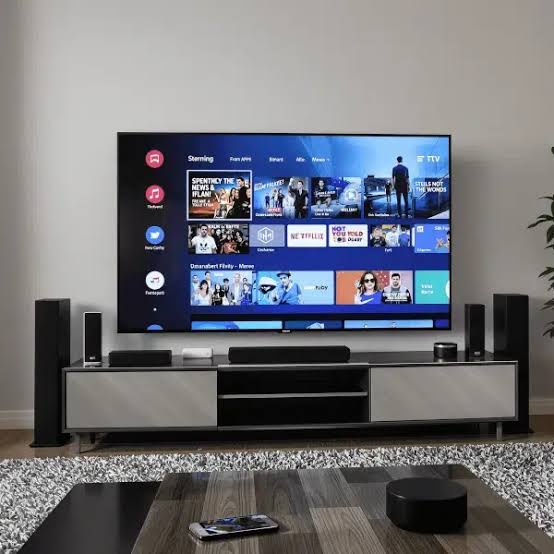Smart TVs have transformed the home entertainment landscape, replacing traditional television sets with devices that combine internet connectivity, advanced features, and high-definition displays. They have become a central hub for media consumption, gaming, streaming, and even smart home integration. With constant technological advancements, smart TVs now deliver a more personalized, convenient, and immersive viewing experience that fits into modern lifestyles.
Expanding Content Access
One of the most significant roles of smart TVs is their ability to provide access to an extensive range of content beyond traditional cable or satellite channels.
- Built-in streaming apps such as Netflix, Disney+, and YouTube give viewers on-demand access to movies, series, and videos.
- Internet browsing capabilities allow users to access online news, music, and sports updates directly on their TVs.
- Integration with digital libraries means users can store and watch their personal media collections without external devices.
This wide range of accessible content makes smart TVs more versatile than older television systems.
Enhancing Picture and Sound Quality
Modern smart TVs come equipped with advanced display technologies that improve visual and audio experiences.
- 4K and 8K resolution deliver sharper, more detailed images.
- HDR (High Dynamic Range) enhances brightness, contrast, and color accuracy.
- Built-in sound enhancements, such as Dolby Atmos, create a more cinematic feel.
These improvements make smart TVs capable of providing a home-theater-like experience without requiring extra equipment.
Enabling Personalized Viewing Experiences
Smart TVs allow users to customize their entertainment in ways traditional TVs never could.
- Recommendation algorithms suggest shows and movies based on viewing habits.
- Multiple user profiles let each household member enjoy tailored content suggestions.
- Parental controls help families manage and filter content for younger viewers.
Personalization ensures that the viewing experience feels more engaging and relevant for everyone in the household.
Supporting Gaming and Interactive Features
Gaming on smart TVs has become more common, especially with cloud gaming services.
- Platforms like Xbox Cloud Gaming or NVIDIA GeForce NOW allow players to stream games without a console.
- Larger screens and high refresh rates enhance gaming visuals.
- Bluetooth compatibility supports wireless controllers for smoother gameplay.
These features position smart TVs as a multipurpose entertainment device beyond movies and shows.
Integrating with Smart Home Systems
Smart TVs often serve as a control point for other connected devices in the home.
- Integration with voice assistants such as Alexa, Google Assistant, and Siri allows hands-free control.
- Smart home dashboards let users manage lighting, security cameras, and thermostats from the TV screen.
- Some models can connect with other IoT devices to create synchronized home automation routines.
This level of connectivity helps smart TVs become part of a broader home technology ecosystem.
Improving Social Viewing
Smart TVs support social interaction by making it easier to share experiences.
- Screen mirroring lets friends and family display photos or videos from their phones.
- Video calling apps allow face-to-face communication on a larger display.
- Live streaming events such as concerts or sports games can be watched together in real-time, even when participants are in different locations.
These features make entertainment more communal and interactive.
Addressing the Challenges of Smart TVs
Despite their benefits, smart TVs come with certain limitations and risks.
- Internet dependency means streaming quality may drop with poor connectivity.
- Privacy concerns arise due to data tracking for targeted advertising.
- Regular updates are necessary to keep apps and software functioning properly.
Understanding these challenges helps users make informed decisions and maintain a secure, optimal setup.
Conclusion
Smart TVs have evolved into powerful entertainment hubs that combine traditional television functions with internet-based services, interactive features, and home automation capabilities. They deliver richer visuals, personalized experiences, and seamless integration with other devices, making them a valuable centerpiece in modern homes. As technology advances, smart TVs are likely to become even more interactive, adaptive, and central to how people enjoy and control their digital entertainment environments.




Interesting